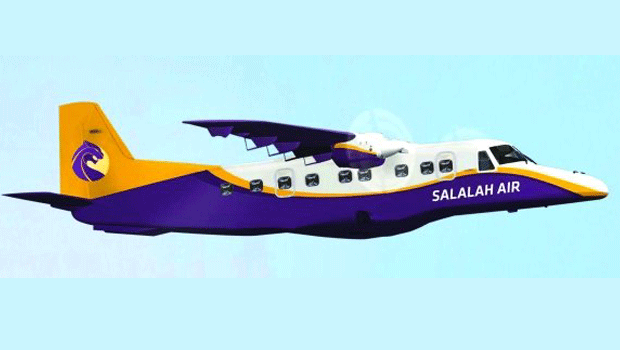
Muscat: Getting a new airline off the ground during the economic downtown has made Oman’s newest operator Salalah Air, fighting fit for the future, according to its CEO.
The new local and regional air service provider based in Salalah, will link the capital of Dhofar with the main destinations in Oman for locals and tourists alike.
Terming it as the right time to invest, Sam Owen, founder and CEO, said: “Austerity must be viewed as an opportunity; setting up a new business now will ensure that any overheads are kept to a minimum and when growth happens it will help ensure that a tight hold is kept on the purse strings.” He also said the company’s Chairman, Ali Masoud Kashoub’s main goal is to bring as many benefits to the people of Oman as possible, which include, employment, training and investment.
Expecting the first aircraft in November, Owen said his company has been created to take advantage of a specific gap in the short-haul domestic travel market.
“Our mission is to grow a profitable airline with a passion for culture, commitment and character and to be the number one air service provider in the region while remaining true to the traditions and culture of Oman,” he said, adding that the first flight will take off from Salalah to Sohar in November.
A charter service is also eventually expected to link Salalah with the Gulf Cooperation Council (GCC) capital cities, and East Africa in co-operation with Spice Island Air, a Zanzibar based start-up air service provider.
“We will bring passengers to the Muscat and Salalah international airports and provide a connecting service for Oman Air and Salam Air, to and from tourist destinations, including by a plane,” said Owen, in an exclusive interview with the Times of Oman on Tuesday.
To connect to all these places, Salalah Air has planned to ramp up its fleet size to 22 aircraft over the next five years. “(The fleet) will be a mixture of Airvan 8, Dornier 228 NG and Pilatus PC 12 aircraft,” Owen explained.
The Airvan 8, Dornier 228 NG and PC 12 aircraft have the ability to operate on un-paved runways.
“This will allow Salalah Air to offer services at many locations where currently no paved runway exists,” he said.
Regarding their Corporate Social Responsibility, CEO Owen noted that to create an interest in Salalah Air and help build the market, it has chosen an identity that the local population feel they can be a part of.
“A brand identity that it considers highlights Salalah and the Dhofar region, namely, the Arabian Leopard (Nimr Al Arabiya),” he said, adding that all the planned project expansion will be completed in strict accordance with the rules and regulations of the Public Authority of Civil Aviation (PACA), the guiding light for civil aviation in Oman.
Earlier this month, PACA had granted preliminary approval to two operators to start private jet operations in the country. PACA had issued a No Objection Certificate (NOC) for a Class B licence to Salalah and Al Sharqiyah aviation companies under which they can operate jets.
The companies are likely to base their operations at Salalah Airport for Salalah Airlines, while Al Sharqiya will be operating from Muscat International Airport.